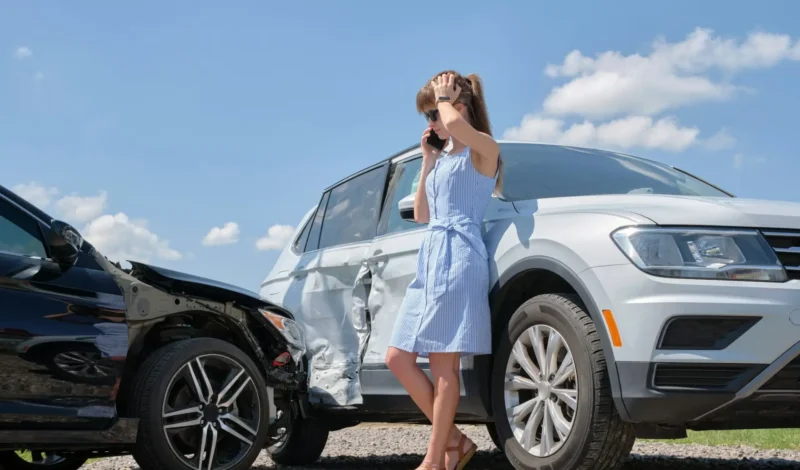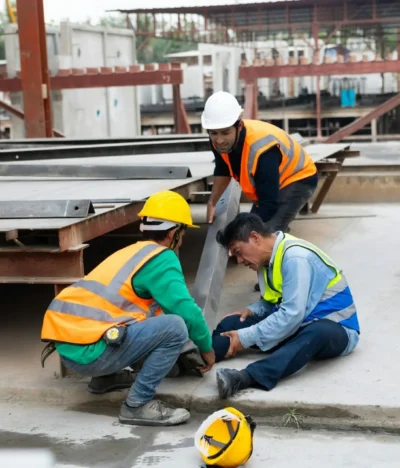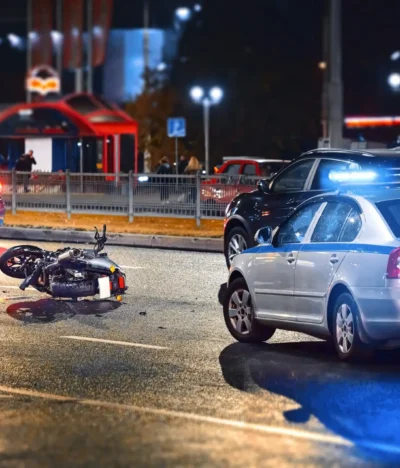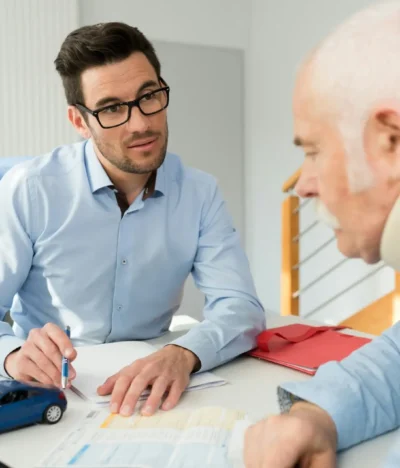Being involved in a car accident can be overwhelming, particularly in a bustling city like Las Vegas. Whether you’re a resident or a visitor, knowing the right steps to take afterward is essential for protecting yourself and your rights.
This guide will walk you through the steps to take immediately after the incident, ensuring your safety and protecting your rights.
Ensure Safety First
Your heart’s racing, and you’re shaken up. The first thing you need to do is take a deep breath and ensure everyone is safe; nothing else matters until you’ve done that.
Check for Injuries
First, check yourself for any injuries. Then, check on your passengers and anyone else involved in the accident. Are people conscious? Are they bleeding? Do they seem to be in pain? If anyone is seriously hurt, don’t try to move them unless they’re in immediate danger. Instead, wait for the paramedics to arrive. It’s better to be safe than sorry. Remember, your well-being and the well-being of others are paramount. If you need to call for help, do it right away. It’s always better to err on the side of caution. Document the initial scene to help with the accident report later, if you can.
Move to a Safe Location
If your car is still drivable and there aren’t any serious injuries, try to move it to a safe location, like the side of the road or a nearby parking lot. This is important, especially in a busy place like Las Vegas. You don’t want to cause another accident by blocking traffic. Turn on your hazard lights to warn other drivers. If you can’t move your car, get yourself and your passengers to a safe spot away from traffic.
Use Emergency Equipment
If you have emergency equipment in your car, now’s the time to use it. This could include things like cones, warning triangles, or flares. Place them around the accident scene to alert other drivers and prevent further accidents. Visibility is key here, especially at night or in bad weather. If you don’t have any emergency equipment, try to use whatever you have available to make the scene more visible, like opening your hood or trunk.
Remember, your safety and the safety of others are the top priority. Don’t try to be a hero or take unnecessary risks. Just focus on getting everyone to a safe place and wait for help to arrive.
Immediate Steps at the Accident Scene
After ensuring everyone’s safety, it’s time to take action at the scene. Don’t panic, even if it feels like chaos. Here’s what you need to do:
Call 911 for Help
Calling 911 is the most important thing you can do. Let them know if anyone is hurt or if there are any immediate dangers, like a car leaking fuel. Getting the police there is essential because they will secure the scene and create an official report. This report is very helpful when you’re dealing with insurance later on. If you’re in Las Vegas and involved in an accident, call 911.
Document the Scene
Document the scene if possible. Use your phone to take pictures. Take photos of damage to all the cars, where the vehicles ended up, any skid marks, and even the surrounding area. These photos can be essential when you’re trying to get compensation. Also, note what happened while it’s still fresh in your mind. Include things like the weather, the road conditions, and anything else that might have played a role in the accident.
Exchange Information with Other Drivers
Make sure you exchange information with the other drivers involved. Get their names, contact information, driver’s license details, insurance information, and license plate numbers. It’s also a good idea to get any witnesses’ names and contact information. This information is essential for filing insurance claims and determining who’s responsible. If you can’t get all the information at the scene, don’t worry, you can usually get some of it from the police report or the insurance companies later. But getting as much as you can right away will make things easier.
When talking to the other drivers, it’s important to stay calm and stick to the facts. Don’t admit fault or try to place blame. Just focus on getting the information you need. Saying the wrong thing could hurt your case later on.
Legal Considerations After an Accident
Understanding Your Rights
After a car crash, it’s normal to feel overwhelmed. You’re dealing with injuries, car damage, and insurance companies. Knowing your rights is the first step in protecting yourself.
Nevada law provides certain protections for accident victims, and it’s essential to understand them. This includes the right to seek compensation for medical bills, lost wages, and pain and suffering. Don’t let anyone pressure you to make decisions before fully understanding your options.
Consulting with an Attorney
Talking to a lawyer after a car accident can be helpful. A lawyer can explain your rights, help you navigate the legal process, and negotiate with insurance companies on your behalf. Finding a lawyer specializing in car accidents is a good idea. They’ll know the ins and outs of Nevada law and can give you the best advice for your situation. Most offer a free initial consultation, so it doesn’t hurt to explore your options.
Filing a Police Report
In the USA, filing a police report after a car accident is often a legal requirement, especially when:
- Someone is injured or killed.
- Property damage exceeds a specific dollar amount (often $500 to $1,500, depending on the state).
- A driver flees the scene (hit-and-run).
- A vehicle is no longer drivable.
Each state sets its own rules, but here are a few general facts:
- Nevada (like many states) requires drivers to report an accident to the police immediately if there are injuries, death, or significant property damage.
- If police respond to the scene, they usually file the report for you.
- If police don’t come to the scene, you might have to file a report at a local police station or through a DMV form (some states, like Nevada, have specific DMV crash forms).
- Failing to report an accident when required can lead to penalties, including fines, license suspension, or even criminal charges.
Filing a police report is an important step after a car accident, especially if significant damage or injuries occur. The police report provides an official record of the accident, including:
- The date and time of the accident
- The location of the accident
- Information about the drivers and vehicles involved
- Statements from witnesses
The police report can be a valuable piece of evidence if you decide to file an insurance claim or pursue legal action. Make sure to get a copy of the report for your records. If the police don’t come to the scene, you may need to file a report yourself at the nearest police station. Don’t skip this step!
Insurance Claims Process
Dealing with insurance after a car accident can feel like a whole other accident in itself. It’s confusing, there’s paperwork, and it usually happens when you’re stressed. But knowing the steps can make it a little less painful. Let’s break it down.
Notify Your Insurance Company
The first thing you should do is call your insurance company. Don’t wait. Most policies have a time limit for reporting an accident, often around 30 days, but sooner is better. When you call, be ready to give them the basic facts: where and when the accident happened, who was involved, and a brief description of what happened. It’s essential to be honest and accurate, but avoid admitting fault. Just stick to the facts. Make sure you understand your insurance coverage before you call.
Gather Necessary Documentation
Time to play detective and gather all the evidence. This includes:
- Your insurance policy number.
- The police report (if one was filed).
- Photos of the damage to all vehicles involved.
- Any medical reports or bills, if there were injuries.
- Estimates for the car repairs.
Having all this ready will speed up the claims process. Keep detailed records of all accident-related expenses, losses, and damage. Itemized medical bills, auto repair invoices, appraisals for replacement parts, and estimates for diminished vehicle value are all important.
Understand Your Coverage
This is where you need to know your policy. What does it cover? What are your deductibles? Do you have collision coverage? What about uninsured/underinsured motorist coverage? Understanding your policy is key to knowing what to expect and your entitlement. If you’re unsure, call your insurance agent and ask them to explain it. Don’t be afraid to ask questions. It’s their job to help you understand your policy.
Understanding Uninsured/Underinsured Motorist (UM/UIM) Coverage is also a good idea. This kicks in if the other driver doesn’t have insurance or doesn’t have enough to cover your damages. It’s not required in many places, but it’s a good idea to have it, especially in a place like Las Vegas, where there are a lot of tourists and out-of-state drivers.
Common Mistakes to Avoid
After a car crash, it’s easy to make mistakes that could hurt your case later. It’s a stressful time, and you might not be thinking clearly. But knowing what not to do can be as important as knowing what to do.
Admitting Fault
Never admit fault at the scene, even if you think you might be partially responsible. It’s easy to say something that could be twisted later. Just stick to the facts when talking to the other driver, the police, or anyone else. Let the insurance companies and legal professionals sort out who’s at fault. Apologizing can be seen as admitting guilt, even if you didn’t mean it that way.
Signing Documents Prematurely
Don’t sign anything from the other driver’s insurance company without talking to a lawyer first. They might try to get you to sign a release limiting your ability to seek fair compensation later. Read everything carefully, and get legal advice if you’re unsure. It’s better to be safe than sorry.
Ignoring Medical Attention
Even if you feel okay after the accident, see a doctor. Some injuries, like whiplash, might not show up right away. Plus, having a medical record of your injuries can help your insurance claim. Delaying treatment can make it harder to prove that your injuries were caused by the accident. Regular vehicle maintenance is essential, but so is your health!
It’s important to remember that insurance companies are businesses. Their goal is to pay out as little as possible. By avoiding these common mistakes, you can protect your rights and ensure you get the compensation you deserve.
Preventive Measures for the Future
Okay, so you’ve been in an accident. Hopefully, you’re on the mend and ready to get back on the road, but with more caution this time. It’s easy to think “it won’t happen again,” but taking simple steps can lower your risk. Let’s talk about some things you can do to be proactive.
Regular Vehicle Maintenance
Keeping your car in good shape is more than just about avoiding breakdowns; it’s a key safety measure. Think about it: worn tires, bad brakes, or a busted headlight can directly cause or worsen an accident. I try to check my tire pressure every month, and I get the oil changed like clockwork. It’s a pain, sure, but way less of a pain than dealing with a collision.
Updating Insurance Policies
Insurance can feel like a waste of money until you need it. Make sure your policy is up-to-date and covers what you think it does. Nevada has minimum coverage requirements, but those might not be enough if you cause a serious accident.
Taking Defensive Driving Courses
I know, defensive driving sounds like something your grandma does. But these courses can be helpful. They teach you to anticipate hazards, react quickly, and be a more aware driver. Plus, some insurance companies offer discounts for completing a course. It’s a win-win.
Driving defensively isn’t just about avoiding accidents; it’s about creating a safer environment for everyone on the road. It’s about being patient, courteous, and always expecting the unexpected. It’s a mindset, not just a set of skills.
.
Need Help After a Car Accident?
If you’ve been injured in a car accident in Las Vegas, you don’t have to navigate the recovery process alone. The experienced team at The Personal Injury Pros is here to protect your rights and fight for the compensation you deserve.
Contact us today for a free, no-obligation consultation and find out how we can help you confidently move forward.
Wrapping It Up: After the Accident
So, there you have it. Dealing with a car accident in Las Vegas can be a lot to handle, but knowing what to do makes it easier. First, make sure everyone is safe and get medical help if needed. Then, document everything—photos, details, and witness info are key. Don’t forget to talk to your insurance and consider getting legal advice if things get complicated. Staying calm and organized can help you through this tough time. You’ve got this!
Frequently Asked Questions
What should I do first after a car accident?
Your first step should be to check for injuries among yourself and your passengers. If anyone is hurt, call 911 right away.
Is it necessary to call the police after an accident?
Yes, you should call the police to report the accident, even if it seems minor. They can help document the scene.
What information should I exchange with the other driver?
You should exchange names, contact details, insurance information, and vehicle details with the other driver.
How do I file an insurance claim?
Notify your insurance company about the accident immediately and provide them with all necessary details and documentation.
What mistakes should I avoid after an accident?
Avoid admitting fault, signing any documents without understanding them, and neglecting medical checks, even for minor injuries.
What can I do to prevent accidents in the future?
Maintain your vehicle regularly, keep your insurance updated, and consider taking defensive driving courses to enhance your skills.








